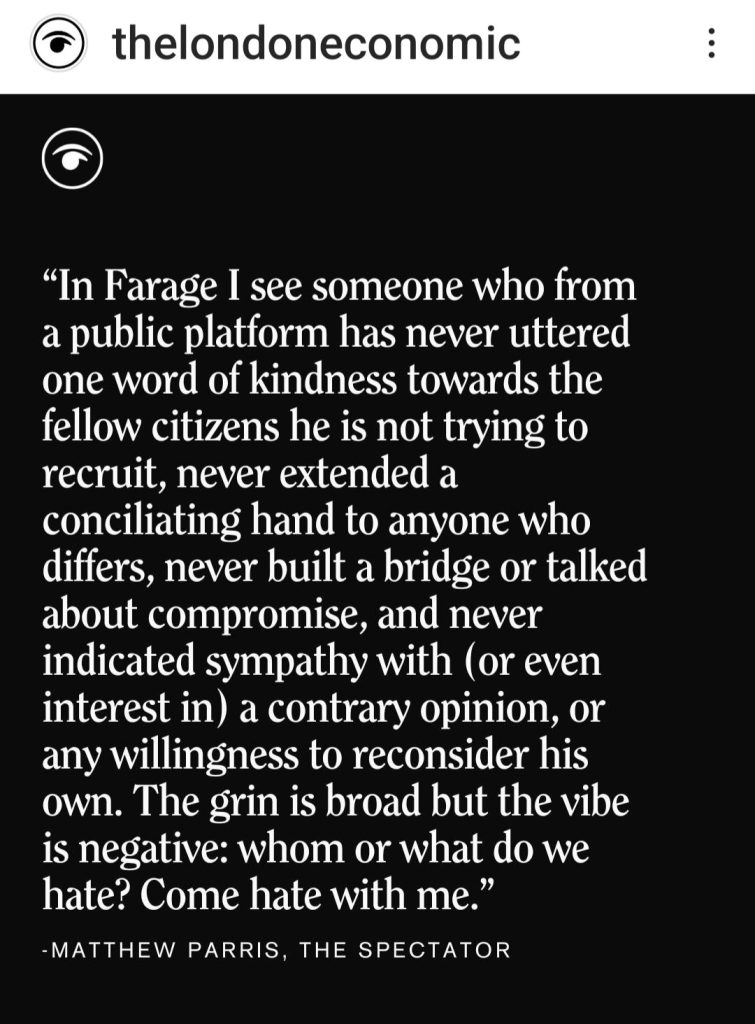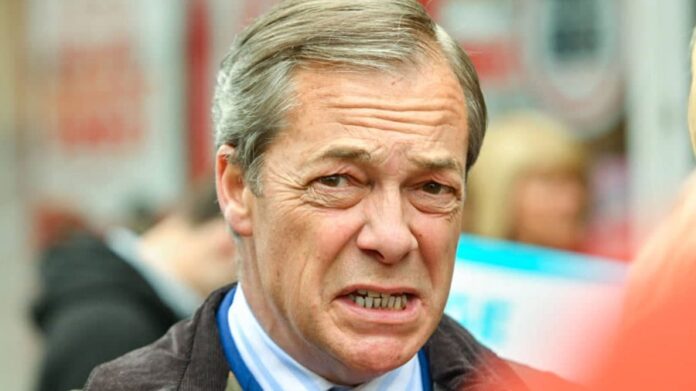Nigel Farage, the leader of Reform UK Ltd., has been a polarising figure in British politics for over two decades. Known for his sharp rhetoric and robust opposition to the European Union, Farage’s influence has significantly shaped contemporary political discourse in the UK. However, a notable aspect of his public persona is the persistent negativity that permeates his political narrative. To understand the impact of his constant negativity, one must break it down into smaller chunks.
The Nature of Farage’s Negativity
Farage’s political career has been marked by a consistent focus on what he perceives as the failures and threats posed by the European Union and its establishment. His speeches and public appearances often highlight issues such as loss of sovereignty, immigration control, and bureaucratic inefficiency. This persistent focus on perceived threats and failures has cultivated an image of Farage as a naysayer, someone who thrives on highlighting the negative aspects of the status quo and rarely offers constructive alternatives.
Impact on Public Opinion
Farage’s negative rhetoric has had a profound impact on public opinion, particularly concerning the European Union. By framing the EU as a bureaucratic monstrosity that undermines British sovereignty and independence, Farage successfully tapped into a deep-seated Euroscepticism among many Britons. This strategy was instrumental in the 2016 Brexit referendum, where the Leave campaign, bolstered by Farage’s rhetoric, managed to secure a narrow victory. Farage’s ability to articulate a narrative of loss and threat resonated with a significant portion of the electorate, underscoring the power of negativity in shaping political outcomes. This barrage of negativity led many to make decisions they now regret. Polling now reveals that most UK citizens are enduring a much worse experience outside of the EU.
Political Debate and Discourse
The negativity espoused by Farage has also influenced the tone and content of political debate in the UK. His confrontational style and tendency to focus on divisive issues have contributed to a more polarised and adversarial political climate. Debates over immigration, national identity, and Britain’s role in the world have become more charged, often characterised by emotive and combative rhetoric. This shift has arguably made it more challenging to engage in nuanced and constructive discussions about complex issues, as the focus often remains on conflict rather than consensus.
Broader Socio-Political Implications
The broader socio-political implications of Farage’s negativity are significant. On one hand, his ability to galvanise support around critical issues has empowered voters who felt marginalised or ignored by the mainstream political establishment. On the other hand, the pervasive negativity risks entrenching divisions within society and fostering an environment of distrust and hostility. The Brexit debate, fuelled by Farage’s rhetoric, exposed and arguably exacerbated deep divides within British society, highlighting the potential for negative political narratives to sow discord and undermine social cohesion. This mirrors the 1930’s and early 1940’s in Germany, in which scapegoats were created to channel the hate onto and away from those in power. Farage and others appear to be employing a very similar strategy.
Even The Spectator nails him
As much as the right wing is pilloried for celebrating inequality and the concentration of wealth, some do actually recognise dangerous people with nothing but harmful intent.

Racism and xenophobia
Nigel Farage has often been accused of racism and xenophobia, accusations that have significantly coloured public perceptions of his political career. His staunch anti-immigration stance and frequent use of inflammatory rhetoric have drawn criticism for promoting fear and prejudice against foreigners. Farage’s infamous “Breaking Point” poster, unveiled during the Brexit campaign, depicted a long line of refugees and was widely condemned for its blatant scaremongering and xenophobic undertones. Additionally, his statements linking immigration to societal problems, such as crime and pressure on public services, have been criticised for fostering division and intolerance. These elements of Farage’s rhetoric have not only fuelled accusations of racism but have also contributed to a more hostile and exclusionary atmosphere in British political discourse.
Nigel Farage’s brand of politics, characterised by its relentless negativity, has left an indelible mark on British politics. While his focus on highlighting perceived threats and failures has resonated with a segment of the population, it has also contributed to a more polarised and contentious political environment. As Britain continues to navigate its post-Brexit future, the legacy of Farage’s negativity will likely remain a contentious and influential aspect of the nation’s political landscape. Negativity in isolation is destructive and crippling. Solution based politics that everyone or at least the vast majority, can contribute to, is the way forward. Unless we want people like Farage, to blight our lives.
Summed up by this woman in Clacton
"Nigel Farage is a total snake, he just wants a seat in power, and he has nothing to do with Clacton."
— BladeoftheSun (@BladeoftheS) June 26, 2024
Clacton has become the most important seat in the Country it's essential that Nigel Farage doesn't win it.pic.twitter.com/smuCzto2Ea
KEEP US ALIVE and join us in helping to bring reality and decency back by SUBSCRIBING to our Youtube channel: https://www.youtube.com/channel/UCQ1Ll1ylCg8U19AhNl-NoTg AND SUPPORTING US where you can: Award Winning Independent Citizen Media Needs Your Help. PLEASE SUPPORT US FOR JUST £2 A MONTH https://dorseteye.com/donate/







